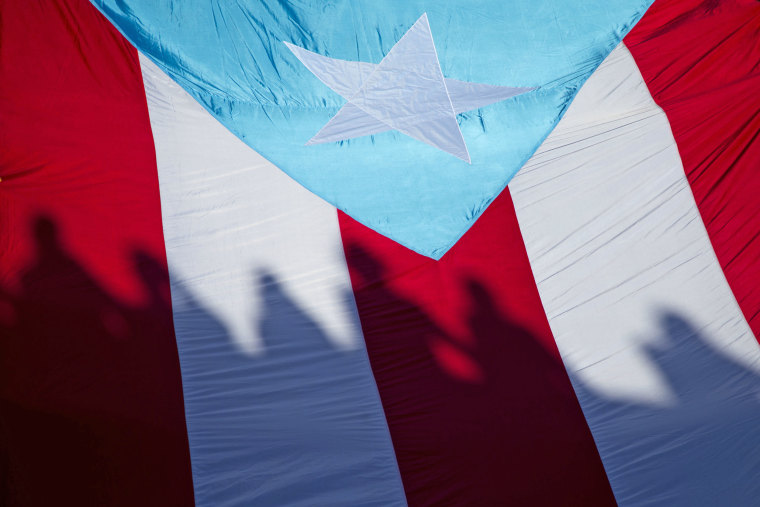Members of Congress reached a deal Tuesday to fund Puerto Rico’s Medicaid program in a way that prevents it from running out of federal money by the end of the year and ensures stable funding for the next five years.
Ensuring consistent funding is crucial for the U.S. territory because of the way the money is allocated.
Unlike the states — where Medicaid funding is open ended and can more easily adjust to the needs of the population in times if crisis — Puerto Rico and other U.S. territories receive a fixed amount of funding, or allotment, with a spending cap that can fall well short of expenditures.
Running out of federal Medicaid funds means that more than a million low-income Puerto Ricans are at risk of losing health care coverage or seeing drastic cuts to their benefits.
Lawmakers reached the deal as part of an omnibus appropriations bill that seeks to fund government programs and operations through the end of this fiscal year, concluding on September 2023.
It would assign over $17.6 billion in Medicaid funds to Puerto Rico over the next five years. The bill also addresses another funding challenge: the federal government’s share of Medicaid costs paid to Puerto Rico.
Even though the poverty rate in Puerto Rico is double Mississippi's (the poorest state), the federal government covered 55 cents of every dollar spent by Puerto Rico on Medicaid, compared with 76 cents in Mississippi in 2019.
That temporarily changed after the pandemic, when Congress passed legislation increasing Medicaid funding by 6% to states and U.S. territories.
The current bill seeks to increase the federal government’s share of Medicaid costs paid to Puerto Rico to 76 cents. While it would match the amount paid to Mississippi in 2019, experts have said the government would need to cover at least 83 cents of every dollar spent by Puerto Rico on Medicaid to more accurately cover the island's health care needs.
Sen. Bob Menendez, D-N.J., who was among those who helped negotiate the deal, said these funds "will provide Puerto Rico with federal dollars that will enable the island to make critical investments that will help stabilize their health care system, retain health care providers, and improve access and quality of care for all of its residents."
If the bill funding the island's Medicaid program isn't passed this week, the federal government’s share of Medicaid costs paid to Puerto Rico would revert to pre-pandemic levels, meaning the U.S. territory would have to pick up a much larger share of the costs.
The bill's failure would also trigger a significant decrease in the allotment Puerto Rico gets to fund its Medicaid program.
Since the start of the pandemic, Puerto Rico has received roughly $3 billion annually for its Medicaid program based on an interpretation of the Medicaid funding cap provision from Centers for Medicare and Medicaid Services. That was significantly higher than the estimated $400 million they were originally scheduled to receive based on pre-pandemic levels.
The bill proposes a Medicaid allotment of $3.28 billion this fiscal year, $3.33 billion on fiscal year 2024, $3.48 billion on fiscal year 2025, $3.65 billion on fiscal year 2026 and $3.83 billion on fiscal year 2027. The increases over the five-year period make up for inflation costs, according to Menendez's office.
If the bill doesn't pass or the interpretation of the Medicaid funding cap provision from the Centers for Medicare and Medicaid Services is reversed, Puerto Rico's Medicaid allotment stands to plummet next year to about $400 million.
Republicans have rejected the Centers for Medicare and Medicaid Services' interpretation of increasing Medicaid funds for the territory, citing a report from the nonpartisan Government Accountability Office stating that the nearly $3 billion allotment for fiscal year 2022 "was not authorized."
Aside from “Puerto Rico avoid its looming Medicaid funding cliff,” Sen. Chuck Schumer, D-N.Y., who also helped negotiate the deal with Menendez, said that “the record levels of funding provided in the bill will allow us to expand access to care for our fellow American citizens on the island and ensure long-term stability for Puerto Rico’s hospitals, providers and health care system.”

